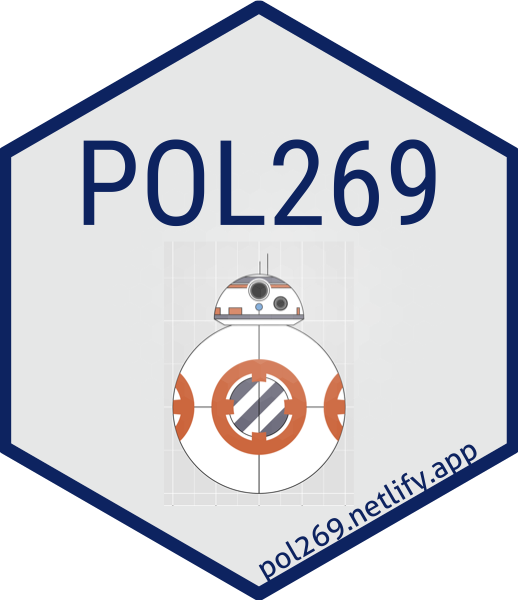
Welcome to POL269 Political Data Research. My name is Dr Javier Sajuria and I am the convenor of this module. The module is co-taught with Dr Elizabeth Simon.
This module is based on years of experience teaching methods, but most recently, on the excellent work by Elena Llaudet and Kosuke Imai.
Module overview
This module provides essential research training in the use of quantitative data analysis in the political and social sciences. We introduce you to how we use quantitative data to learn about the political world, by teaching you the theory behind quantitative data analysis and giving you hands-on experience in using the statistical software R. The course is, therefore, particularly useful for those interested in a future career in data analytics or in becoming critical consumers of quantitative research. The module caters to students from diverse academic disciplines and adopts a practical approach to learning, with weekly computer tutorials.
Data analysis is quickly changing the way we understand and engage in politics, how we implement policy, and how organizations across the world make decisions. In this module, we will learn the fundamental principles of statistical inference and develop the necessary programming skills to answer a wide range of political and policy oriented questions with data analysis. Who is most likely to win the upcoming general election? Do countries become less democratic when leaders are assassinated? Is there racial discrimination in the labour market? These are just a few of the questions we will work on in the course.
The module covers descriptive statistics, data visualisation, data access, probability, sampling, hypothesis testing, inferential statistics and linear regression. Students will be introduced to the R statistical software and work with data used in current academic research.
Students are not expected to have any prior programming knowledge or experience. The course will be centred around bite-size assignments that will help build coding and statistical skills from scratch. Students will leave the course equipped for work in any setting that requires a social scientific approach to data analysis, from policy non-profits to government, from Silicon Valley to Wall Street and beyond.
QMPlus Website: POL269 QMPlus (QMUL login needed)
Required textbook: Data Analysis for Social Science: A Friendly and Practical Introduction. United States, Princeton University Press, 2022.
Required Statistical Software: R (http://www.r-project.org) and RStudio (https://posit.co/download/rstudio-desktop/)
Advice and Feedback Hours
Please make use of our advice and feedback hours!
My advice and feedback hours are Monday 15.30-16.30 and by appointment. You can book your slot via Calendly. These meetings will take place in my office (ArtsOne 2.29) or online via Teams (if explicitly requested).
Lizzie’s office hours will be on Tuesdays 11-12 in office 2.31A, ArtsOne Building. They are on a drop-in basis, so no need to book.